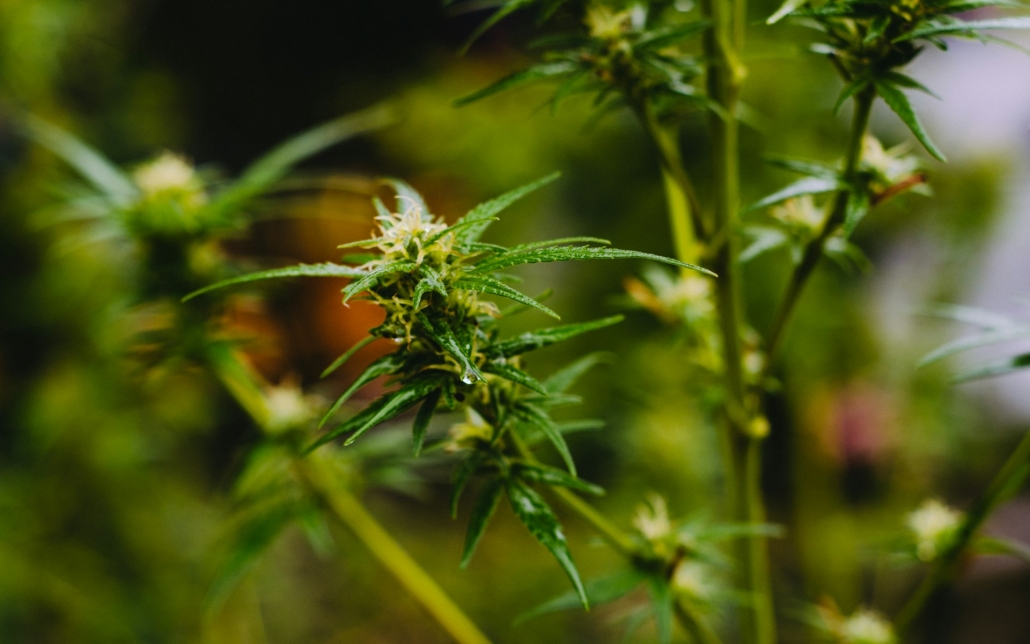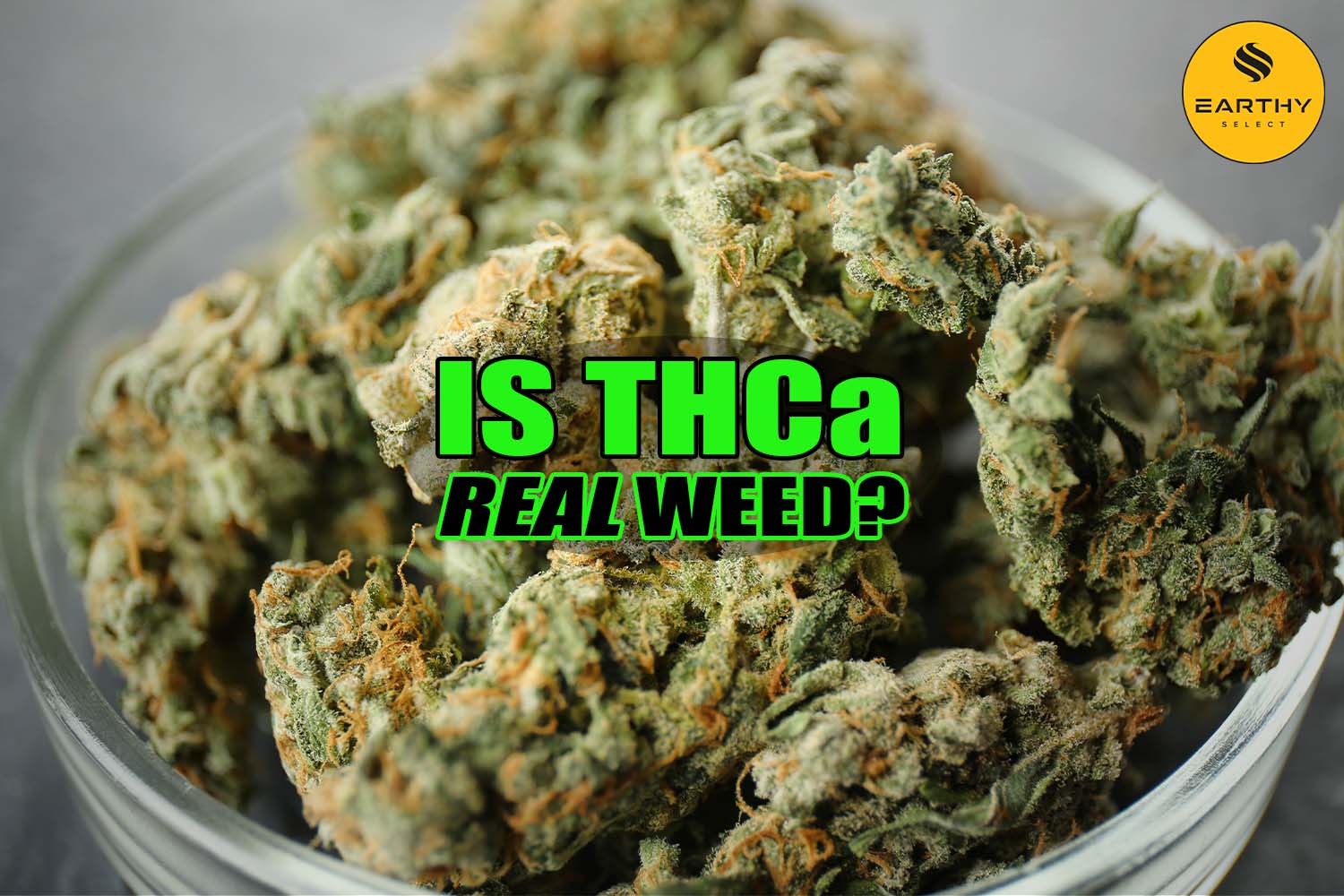Is THCa Real Weed?
With the growing popularity of cannabis products, the cannabinoid THCa (tetrahydrocannabinolic acid) has gained significant attention. But many people wonder whether THCa can be classified as “real weed,” particularly as laws surrounding cannabis evolve. Here, we’ll explore the distinct properties of THCa, consider its potential wellness and recreational benefits, and parse out whether it fits into the broader category of what people commonly refer to as weed.
What is THCa?
THCa is a naturally occurring cannabinoid found in fresh cannabis plants. Unlike THC, THCa does not produce psychoactive effects in its raw form. In other words, it won’t cause the typical “high” associated with smoking or ingesting cannabis when unheated. However, THCa is the precursor to THC, the compound responsible for the psychoactive effects of marijuana. As such, when THCa cannabis plant material heats through a process called decarboxylation, THCa undergoes a chemical reaction where it loses a carboxylic acid group. Remarkably, this process converts THCa into Delta 9 THC, the active form of THC that is a psychoactive compound [1].
Does THCa Get You High? It’s Complicated
THCa vs. THC: the key differences
The most significant difference between THCa and THC is that THCa does not produce psychoactive effects without heat. For this reason, many people who want to avoid the high of THC turn to THCa products for wellness benefits. Typically, THCa is abundant in raw cannabis buds or hemp flowers. Notably, consuming raw THCa from these sources has become increasingly popular, particularly in states where marijuana is not legal [2].
While heating or smoking THCa initiates its conversion from THCa into Delta-9 THC, consuming raw THCa offers a different experience [2].
Delta-8 THC vs Other Cannabinoids
Is THCa real weed?
The question of whether THCa flower is real weed largely depends on how one defines the term. For example, if you understand “weed” as cannabis that causes a high, then THCa, in its raw form, does not meet that definition. However, since THCa converts to THC when exposed to heat, THCa flower and raw cannabis produce typical THC experiences when decarboxylated and activated. As such, THCa is a component of real “weed.” But remember, in its unheated form, it has distinct properties compared to traditional THC products and cannot get you high [3].
Hemp-derived THCa’s growing popularity has found a legal loophole in some jurisdictions. Because it does not meet the definition of marijuana, it is not technically psychoactive, so THCa falls under the definition of federally legal hemp and is not classified as a controlled substance like marijuana. As a result, vendors can legally sell products with a high THCa percentage federally so long as they are hemp-derived and contain no more than 0.3% Delta-9 THC on a dry weight basis [3].
Do Delta-9 Gummies Get You High? Everything You Need to Know
Potential wellness properties of THCa
Beyond the legal debates, much of the interest in THCa stems from its potential wellness properties. However, THCa has not been proven to have anti-inflammatory properties or neuroprotective properties, even though researchers continue to study it for these and other potential therapeutic properties, including relief from chronic inflammation [4]. Notably, researchers have also uncovered promising findings in animal studies regarding THCa’s effects related to neurodegenerative diseases like Alzheimer’s disease. For example, some studies suggest that, with further research, THCa might help protect cells from damage, potentially benefiting patients with chronic conditions [5]. However, these studies are in their infancy, and those interested in using THCa for wellness or specific conditions should consult a healthcare professional.
Other possible health-related areas of study include THCa’s ability to support lung health. Since THCa does not need to be smoked to offer wellness benefits, its use may sidestep some of the adverse effects associated with smoking THC. In contrast to edibles, smoking cannabis can irritate the lungs, exacerbate respiratory symptoms, and increase the risk of chronic bronchitis. Yet, when consuming THCa through other consumption methods—such as juicing raw cannabis plants or using tinctures—the conduction method will not introduce smoke into the lungs [6].
THCa and the endocannabinoid system
Like other cannabinoids, THCa interacts with the body’s endocannabinoid system (ECS), a complex network of receptors that play a role in regulating various physiological processes, including the perception of pain, mood, and immune response. While more research is needed to fully understand how THCa affects the body, its potential to protect and modulate bodily functions and sensations suggests it could be a useful raw food supplement for people dealing with various wellness issues [7].
Additionally, early evidence suggests that THCa may have fewer adverse side effects compared to high-potency THC. However, individual sensitivity to cannabis varies, so it’s important to be cautious when incorporating THCa products into a health regimen [8]. Also, remember to consult a physician if you use prescription medications or have any other questions regarding safety.
Legality of THCa
The legal status of THCa is complex. In many areas, laws focus on Delta-9 THC as the main psychoactive ingredient in cannabis. In contrast, THCa, in its raw form, falls outside these regulations if it has no more than 0.3% Delta-9 THC and is hemp-derived, making it federally compliant. Thus, this creates a legal loophole in some jurisdictions where THCa flowers or THCa products are legal, despite the fact that they could eventually convert THCa into THC if heated [9].

This raises concerns about drug tests, as some tests detect the presence of THC, not specifically THCa. However, because THCa converts to Delta-9 THC upon heating, individuals consuming THCa flower could still fail a drug test, depending on the consumption method [9].
Buy THCa Flower in Georgia- Buying Guide for Best THCa Flower
How to consume THCa
One of the most popular methods for consuming non-psychoactive THCa is by eating fresh cannabis plants. For example, these buds can be juiced or blended into smoothies to maintain the naturally occurring cannabinoid in its raw form. Alternatively, some people use it in tinctures or capsules made from raw cannabis. These methods avoid the psychoactive properties of THC and offer a way to experience the potential benefits of THCa without smoking THC [10].
While consuming raw THCa flower may provide wellness benefits, many individuals enjoy smoking or vaping THCa to activate its psychoactive properties [1]. Indeed, a number of highly potent, popular THCa products are available from Earthy Select. For example, Earthy Select offers robust concentrates, such as THCa diamonds, bubble hash, and rosin.
However, THCa has potential risks, especially for those new to cannabis products. For example, some users report upset stomach or mild discomfort when consuming large amounts of raw cannabis. Also, it’s important to note that THCa does not typically have the same potency as psychoactive THC, so those seeking the desired effects of THC should be aware of the differences [1].
Spectrum of Effects: Explore the Best Weed Strains 2024
Key takeaway: is THCa real weed?
To answer the question, “Is THCa real weed?” the answer is both yes and no. THCa flower is certainly derived from the same cannabis plants as traditional THC flower, but its distinct properties—primarily the absence of psychoactive effects—set it apart. However, when THCa undergoes decarboxylation and turns into Delta-9 THC, it becomes what is universally recognized as weed [1].
Ultimately, the future of THCa products lies in continued research into its potential therapeutic benefits and evolving legal landscapes. Whether you seek the wellness benefits of consuming raw THCa or are curious about its role in the broader world of cannabis products, THCa is a fascinating cannabinoid with a lot to offer.
Visit Earthy Select to peruse an exciting selection of potent THCa flower and concentrates!
Medical Disclaimer / Legal Disclaimer – Information is provided for educational purposes. It does not and is not intended to constitute legal advice or medical advice. We attempt to be accurate and up-to-date, but the legality of cannabinoids and the science of cannabis are evolving. The author is neither a legal professional nor a medical expert. Before buying or using any products, you should check with your local authorities and medical providers.
References
- What Is THCa?
- THC vs. THCA: What are the Differences and Benefits
- THCa Meets Legal Definition of Hemp, Operators Say – But Not Everyone Agrees
- Understanding THCA: Benefits and Uses
- The Cannabinoids, CBDA and THCA, Rescue Memory Deficits and Reduce Amyloid-Beta and Tau Pathology in an Alzheimer’s Disease-like Mouse Model
- Can You Eat Weed?
- A Simple Guide to the Endocannabinoid System
- THCa vs THC: An In-Depth Analysis of Their Differences
- Is THCa Legal? Complete State-By-State Legislation Guide
- What Are The Potential Benefits of THCa Flowers?
Frequently Asked Questions
Do people consider THCa real weed?
THCa comes from the same cannabis plants as THC, but it doesn’t produce psychoactive effects in its raw form. However, some people consider it real weed because it turns into psychoactive Delta-9 THC when heated [1].
Can you get high from smoking THCa?
Yes, because once the THCa converts into THC by smoking or heating, it becomes he psychoactive compound responsible for the cannabis high. However, without heat, THCa remains non-psychoactive [1].
Is THCa legal?
THCa is federally compliant meaning it is legal on a federal level to produce, ship and consume it, as long as it is hemp derived and contains no more than 0.3% Delta-9 THC on a dry weight basis. This is according to the the US Farm Bill and applies federally, but not all states follow the same rules and THCa may not have the same protections in all states or jurisdictions [9].



